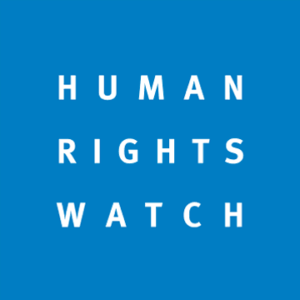Since its release on March 23, the 2017 Ranking Digital Rights Corporate Accountability Index has received attention from NGOs and media outlets around the world.
 According to Cynthia Wong of Human Rights Watch, the Index “provides users with a crucial assessment about company policies, and a roadmap for the basic standards firms must meet if they hope to earn our trust by respecting our privacy and freedom of expression.”
According to Cynthia Wong of Human Rights Watch, the Index “provides users with a crucial assessment about company policies, and a roadmap for the basic standards firms must meet if they hope to earn our trust by respecting our privacy and freedom of expression.”
Ranking Digital Rights (RDR) partner Access Now highlighted the Index’s findings showing that telecommunications companies lack transparency about their processes for responding to network shutdown requests from governments. “Telcos can often be required to shut down the internet at risk of losing their licenses to operate, but still have options to push back against governments,” according to the organization. “Ranking Digital Rights illuminates many ways for telcos to increase transparency on their shutdown policies and practices.”
R3D, a digital rights organization based in Mexico, also published a piece spotlighting the performance of Mexican telecommunications company América Móvil, which ranked fifth out the 10 telecommunications companies evaluated in the 2017 Index.
The Global Network Initiative (GNI) issued a statement highlighting a key Index finding that GNI and Telecommunications Industry Dialogue (TID) members were among the top performers in the Index.
Index findings were also reported in Yahoo Finance, Observer, Media Power Monitor, Vocativ, Global Voices Advox, Entrepreneur, and CSO Australia. The China Digital Times and Hong Kong Free Press reviewed the differences between the two Chinese companies evaluated, Baidu and Tencent.
 In addition, RDR team members were interviewed and invited to write pieces about the 2017 Index research. On NPR’s Weekend Edition, RDR project director Rebecca MacKinnon discussed key findings of the Index and what these findings mean for users’ freedom of expression and privacy. “What’s really important is that companies be transparent, so people know who to hold accountable,” she said. “If your content is being removed or you’re being prevented from accessing certain information, you need to know who is responsible for that decision.”
In addition, RDR team members were interviewed and invited to write pieces about the 2017 Index research. On NPR’s Weekend Edition, RDR project director Rebecca MacKinnon discussed key findings of the Index and what these findings mean for users’ freedom of expression and privacy. “What’s really important is that companies be transparent, so people know who to hold accountable,” she said. “If your content is being removed or you’re being prevented from accessing certain information, you need to know who is responsible for that decision.”
In the Consumerist, senior research fellow Nathalie Maréchal discussed the Index findings related to mobile ecosystems. Our research showed that all three mobile ecosystems evaluated—Apple iOS, Google Android, and Samsung’s implementation of Android—failed to sufficiently disclose policies affecting users’ freedom of expression and privacy. In a piece for Global Voices Advocacy, Maréchal also discussed how cheaper smartphones can leave users more vulnerable to online threats and hacking, highlighting the importance of company disclosure of how they address security vulnerabilities.
In Slate, policy and communications analyst Ilana Ullman discussed the issue of Facebook and Twitter providing access to Geofeedia, a third-party developer that marketed its social media-monitoring product as a surveillance tool to U.S. law enforcement. The issue highlights why social networks need more clear terms of service, according to Ullman. “Social media companies must be more transparent with their users about the steps they are taking to crack down on surveillance tool developers like Geofeedia, and provide evidence that these commitments are being implemented,” she wrote.
In the New America Weekly, senior research analyst Laura Reed discussed how the recent roll back of the FCC’s broadband privacy guidelines will negatively impact transparency and public accountability around how companies handle users’ information. “All companies should, at the very least, tell users what they are doing with their personal information,” according to Reed.
Read more about the 2017 Index, key findings, and recommendations. The full report and raw data can be downloaded here.




